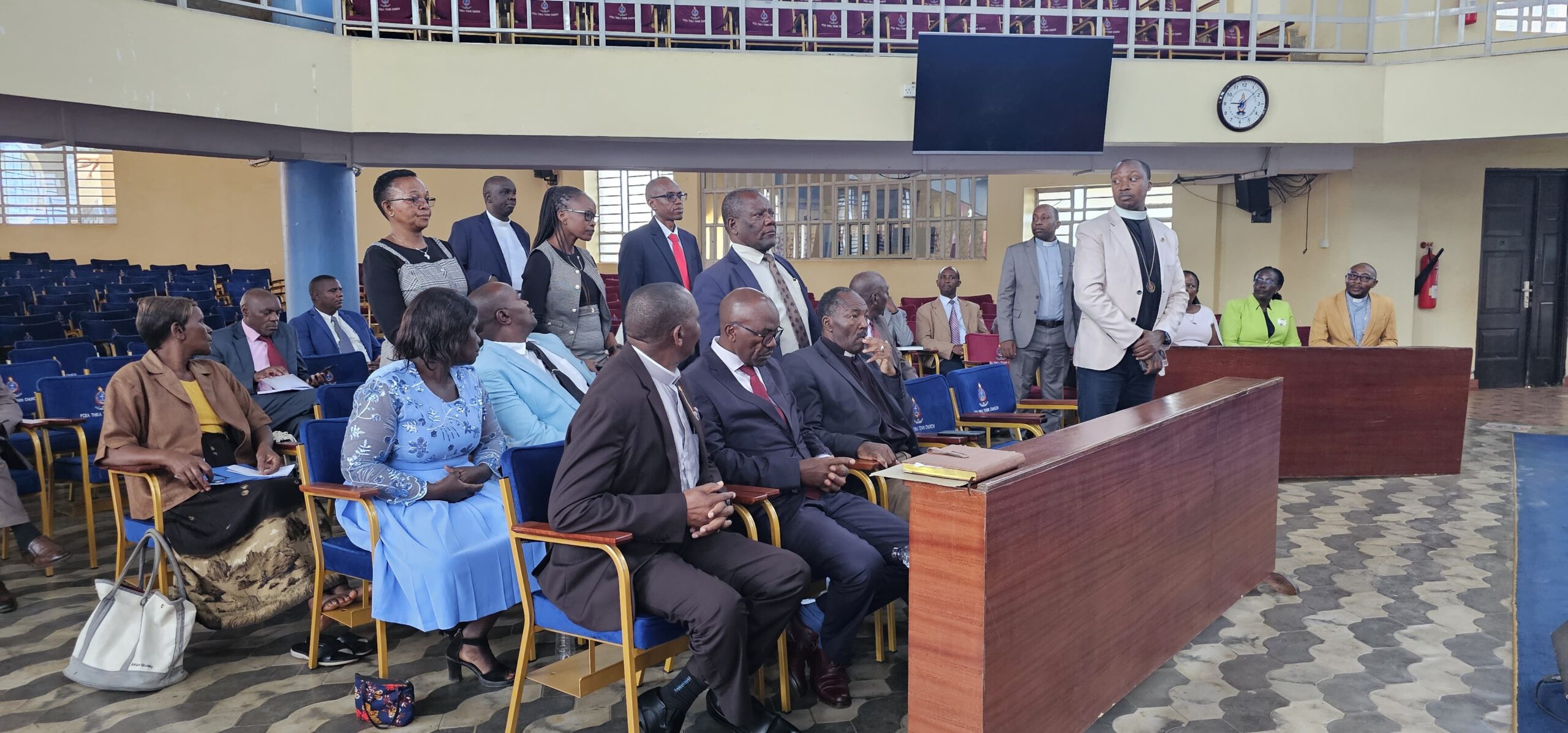Understanding the Journey to Holy Ministry in the PCEA: A Focus on Exit Interviews
You may have sat in church and heard announcements about ministerial licensing or ordination—perhaps not just once, but over several Sundays. What may seem like routine church notices are actually milestones in a long, structured journey that transforms student ministers into ordained clergy a process grounded in discipline, evaluation, and spiritual preparation.
Over a few weeks in May 2025, the PCEA Training Committee, under the leadership of Deputy Secretary General Rev. John Mbae, conducted exit interviews for student ministers across all five regions. Exit, in this case, means to move from one process to another. These interviews marked an important transition point for candidates who have completed their practical training in designated presbyteries.
After course completion in the University, Theological student are posted to Parishes for a six months to one-year Practical period. Before they are approved for Licensing and subsequent ordination, they are taken through Exit interviews. Unlike typical job interviews, PCEA’s exit interviews are deeply rooted in systems and structure and are conducted in the presence of representatives from the candidate’s parish, presbytery, and, where applicable, their spouse. Each session begins with a joint worship service for all before the interviews are conducted for one candidate at a time. This process helps ensure that the student has not only completed their assigned duties but has also grown in understanding and practicing the work of ministry.
During the recent Exit interviews, The Deputy Secretary General, Rev. Mbae, reminded those present that the processes followed by PCEA in preparing her leaders are essential in both life and ministry, he emphasized that PCEA, like its biblical foundation, values process over haste. “We serve a God of processes — from the story of creation to the life of Christ. In ministry, process builds patience, humility, skills and create an environment to learn,” he said. He went on to remind the candidates that many more interviews will follow in their journey of becoming a ministers, these many other sit downs will see candidates, ordained, posted to parishes and holding other major offices within the church.
According to PCEA’s Practice and Procedure ‘the word ministry is used to refer to the work of those of its members who have been called, trained and ordained to preach the Word of God, celebrate the Sacraments, and declare God’s message of pardon to penitent sinners on earth.’ A Minister in the PCEA is one set apart by ordination to exercise the ministry of Word, Sacraments and Order.
After successful exit interviews, the Training Committee compiles a detailed report on all the candidates across the five regions. This report forms the basis on which the church will decide whether to grant licensing approval – the next step before ordination.
Licensing is conducted during a public worship service by the presbytery, in the presence of a member of training, where possible, the service is presided by the officers of the GA. While a licensed minister can perform most duties of an ordained minister, they cannot administer sacraments or conduct marriages until after their ordination. Typically, licentiates serve a probationary period of up to six months before being eligible for ordination.
It is worth noting that congregants play an important role in this entire journey. Through daily interactions and service, they help shape and affirm the character of future ministers. Their presence, support, and feedback are part of what strengthens the Church’s ability to call out leaders who are truly ready to serve.
So next time you hear an announcement about a licensing or ordination, remember that behind it lies a journey filled with learning, discernment, commitment, and prayer. It is a journey of becoming—not just a minister in title, but a servant prepared for the sacred work of shepherding God’s people.

